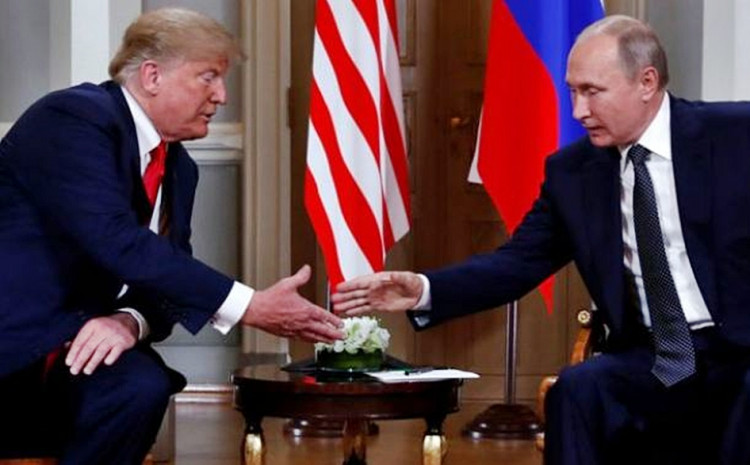Russia is reinforcing its demands for a resolution to the Ukraine war, insisting that all of President Vladimir Putin's conditions be fully met before considering an end to hostilities. Moscow's stance follows President Donald Trump's claim that he has made progress in efforts to negotiate peace, although the details of his approach remain unclear.
Asked whether he had spoken with Putin since assuming office on January 20, Trump told reporters aboard Air Force One, "I've had it. Let's just say I've had it." The Kremlin declined to confirm or deny the contact, maintaining its usual discretion regarding diplomatic exchanges.
Deputy Foreign Minister Sergei Ryabkov reinforced Russia's firm position during a Monday briefing in Moscow. The "political solution as we envisage it cannot be achieved otherwise than through the full implementation of what was pronounced by President Putin when he spoke to the Russian Foreign Ministry in June," he said. "This is where we are and the sooner U.S., Britain and others understand it, the better it would be and the closer this desired political solution will be for everyone."
Putin's demands, first outlined in a June 14 speech, include Ukraine abandoning its NATO ambitions and withdrawing from all territory in four regions Russia claims as its own. Kyiv has rejected these conditions, viewing them as tantamount to surrender.
Ukraine President Volodymyr Zelenskyy has underscored the importance of continued Western backing in any negotiation process. In an interview with Britain's ITV News, Zelenskyy said he "would be ready for any format for talks" if there was "an understanding that America and Europe will not abandon us and they will support us and provide security guarantees." He also warned that any attempt to freeze the conflict along current frontlines would result in "more aggression again and again."
Moscow has dismissed direct negotiations with Zelenskyy, with Putin previously declaring the Ukrainian leader "illegitimate." Russian Deputy Foreign Minister Mikhail Galuzin told state news agency RIA Novosti on Monday that Moscow has yet to receive any concrete negotiating proposals from the Trump administration. "We approach such statements realistically. It is important that words are supported by practical steps that take into account Russia's legitimate interests, demonstrate a willingness to root out the root causes of the crisis and recognize new realities. No specific proposals of this nature have been received yet," he said.
As the prospect of renewed diplomatic engagement looms, the White House is preparing key visits to Europe and Ukraine. Vice President JD Vance is expected to attend the Munich Security Conference in Germany next weekend, while Trump's Ukraine-Russia envoy, Keith Kellogg, is scheduled to visit Ukraine on February 20.
Meanwhile, hostilities between Russia and Ukraine remain intense. Ukraine's air force reported on Sunday that it had intercepted 61 of 83 Russian drones targeting cities across the country, with debris from a downed drone sparking a fire in Kyiv. In Russia, authorities in the southern Krasnodar region said Ukrainian drone debris damaged a multi-story building, though no casualties were reported.
Trump has long pledged to end the war swiftly. Reuters previously reported in November that Putin remains open to discussions with Trump but refuses to make significant territorial concessions or allow Ukraine to pursue NATO membership. While Washington and Kyiv explore potential diplomatic avenues, Ukraine's Western allies continue to provide military aid, arguing that any ceasefire agreement must ensure Ukraine's sovereignty and security.




